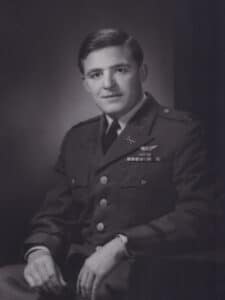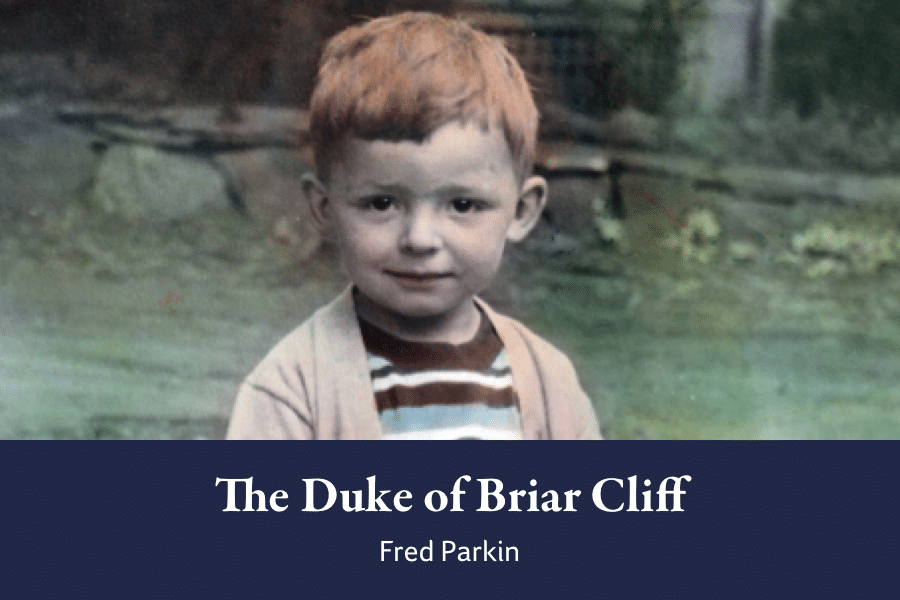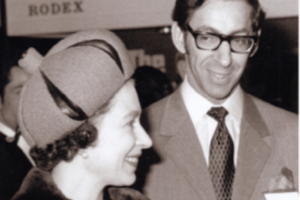Of the many pleasures of being an editor at LifeBook Memoirs, perhaps the simplest is working with an author who is a natural storyteller. Fred Parkin, warm, funny, self-deprecating, and creative, is just such an author. His sense of humor, however, distracts one’s attention a little from his inquiring mind, generosity, innovative spirit, and adventurous tendencies.
Carols in Karachi
Born in Pittsburgh, Pennsylvania, just a few weeks before the U.S. joined World War Two, he was, he says, such a late bloomer that nobody at his school predicted an eventful future for him. He has, nevertheless, led a full and exciting life.
Fred dreamed of flying from the moment he watched someone ride up to the Ithaca Municipal Airport on a motorcycle, hop off it, jump into the cockpit of an airplane, and take off. He was, he says, instantly enamored, and by the time he graduated from Cornell in 1963, he had his first motorcycle and a private pilot’s license. Following completion of ROTC (Reserve Officers’ Training Corps) at Cornell, and a five-month solo drive from Paris to Cairo to climb the Pyramids, Fred trained as a bush pilot for his service with the U.S. Army in Vietnam and flew the Caribou, a slow transport plane designed to land on short jungle airstrips. In his typical diffident style, he describes himself as more a truck driver than a pilot, ferrying troops, ammo, and body bags around the Vietnamese countryside. Fred became fond of his Caribou, Grey Tiger 05, and he keeps its fuel gauges, salvaged from the Aviation Graveyard in Qui Nhon, on his desk to this day. Happily, he was on R&R in Hong Kong when it crashed.
Once his year in Vietnam was up, Fred joined Pan Am as a pilot, flying on a nine-day around-the-world route once a month. This was much more glamorous than air-dropping food parcels in the jungle and, according to Fred, a great deal of fun. He describes skiing in Tehran, singing carols in a boat in Karachi Harbor one Christmas, and happily wandering the streets of Beirut on stopovers. These halcyon days came to an end, though, when Pan Am made him redundant in 1970.
Prime ribs and boxcars

In a stroke of serendipity, Fred was already an investor in a new restaurant called Victoria Station in San Francisco, following a chance encounter in his Pan Am cockpit. He became the restaurant’s night manager, and, from this modest position, he rose to become the director of operations and training in a restaurant chain, which, by 1980, had 100 outlets. Victoria Station restaurants were white-tablecloth prime rib establishments, the unique selling point of which was that they were in railroad boxcars, and they were a household name in the U.S. for 20 years. They were highly successful until the day the dining in public moved on, and they stopped being popular.
After the demise of Victoria Station, Fred was invited to join Chevys, a group of Mexican restaurants that he built into another successful chain. Characteristically, Fred says that he wasn’t the guy with the original idea; instead, he provided structure, management, and organization—he was “the guy sweeping up behind the elephant at the circus,” he says—and this worked very well in both of his restaurant businesses.
A lively sense of the ridiculous
A keen reader and writer, Fred believes in sharing the joy of literature with others, and he has funded literary programs at his old school and college. With a lively sense of the ridiculous, he has taken to the stage in a variety of theatrical guises, while, at home, he loved to recite TS Eliot’s Bustopher Jones with his children. He can still recite it, word perfect.
Working on Fred’s life story was immensely satisfying. Fred is a witty and clever raconteur, sometimes ironic but never unkind, sometimes whimsical but always thoughtful, and this makes his stories thoroughly memorable. Perhaps all these traits can be exemplified by his following tongue-in-cheek, aphoristic advice to his children: “One of the important things in life is to be very curious because a strong sense of curiosity and a good memory will always be confused with intelligence.” Redolent of his characteristic enjoyment of the fun you can have with words, this quotation is also evidence that Fred wears his nimble intelligence lightly.
Fred’s story has its fair share of sad and poignant moments, but his enthusiasm for all that the world has to offer, and his ability to describe all of life’s vicissitudes with richness, wit, and clarity, makes reading his book, ultimately, a warm and uplifting experience.
Written by Kate Parry, LifeBook Memoirs editor





